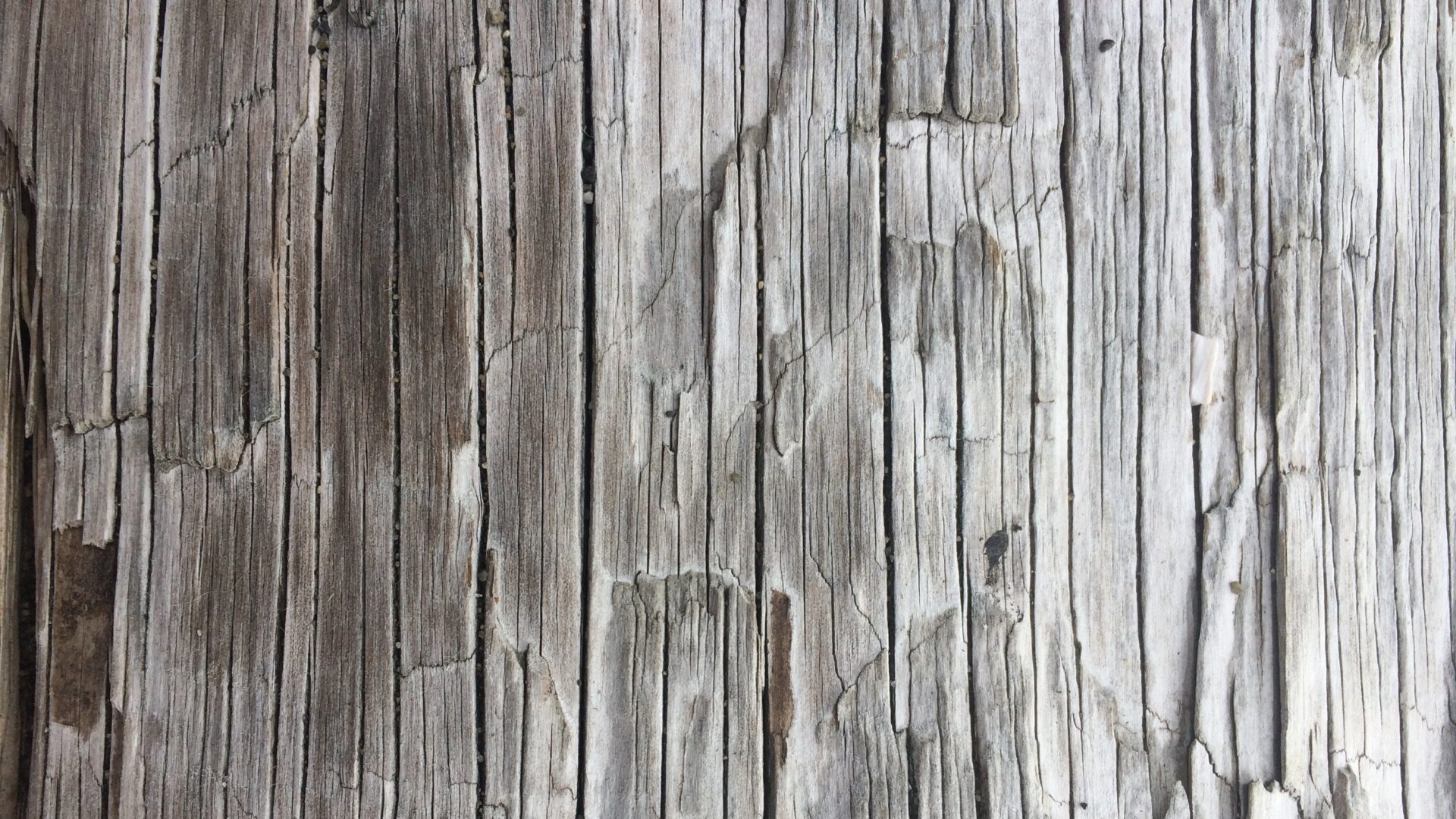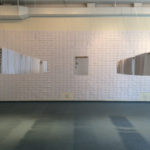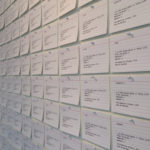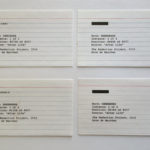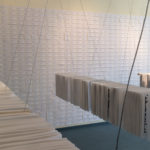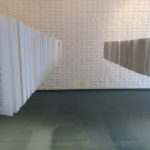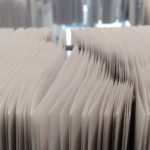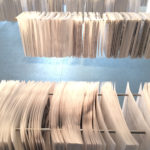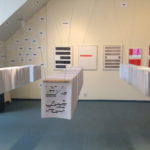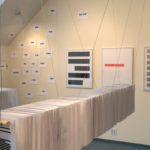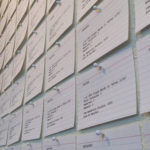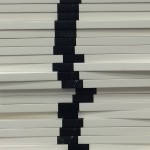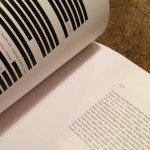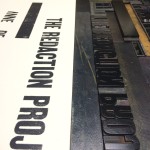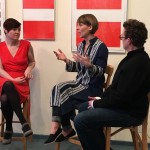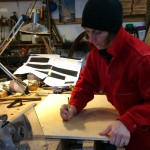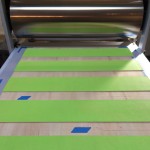The Redaction Project, 2016, Salon Rafu
watch the mini-doc by Finley Mimbles & Wovie
Originally installed at Salon Refu, March 12 – April 8, 2016, The Redaction Project is a material interrogation of narrative, words, and loss. The interdisciplinary installation involves woodblock relief prints, letter-press words and broadsides, wire, poplar dowel, 8 1/2 x 11 printer paper, inkjet toner, audio, and 9,897 index cards.
Press
Notes on the project during development
The Redaction Project is a return to the material. Writers and filmmakers and songwriters and other artists, too, refer to their material. Or maybe more often it is the people who write about writers and artists who refer to it. Their subject matter. But really, taken this way, it is a dematerialization. It is the transformation of real into representation. The word is already a far piece from the thing, but the story is hell and gone.
It began as a way of intervening in my own writing, of disrupting and disequilibrating narratives that felt both finished and unsatisfying. I had completed a collection of short stories that by all appearances was ready to go to the agent I’d kept waiting for two years. More than half of the stories had already been published in respectable journals and done hoped-for things like travel to New York City for live performance, go on NPR, win awards, garner interviews…. For short stories, they had lived quite exciting lives. But the collection—both as a whole and in its constituent parts—felt lifeless to me, and when I thought of anyone reading it, I cringed the way I do when I remember the thing I said to Harold Crawford when I was thirteen.
I tried rewriting the stories. I tried just moving on. Neither was possible. They were too good and they were too bad.
I thought of Jean-Luc Godard. As the (probably apocryphal) story goes, after he finished editing “Breathless” in 1959, the film was too long for commercial release, so, regardless of the effect on cinematic or narrative continuity, he cut out every shot he found lacking in some unnamed but essential quality. The resulting jump cuts and discontinuities remain as indexical evidence of the missing shots and are radically reflexive indicators of the constructedness of conventional film and of narrative itself.
I thought of Jenny Holzer’s screen-printed blow-ups of redacted government documents related to the invasion of Iraq. I stood in an odd-shaped gallery at Mass MoCA or the DIA: Beacon or the Whitney or the Tate in London (I can’t remember where or when), and looked into the deep black of implication. What made the black of the redacted words different than the black of the letters I could read? In a reproduction of the redacted document, there was nothing concealed. The mark and the word were equal, and yet I loved the mark more.
I started with the title story, “After Life,” which is about the gap that separates the life you live before a death and the life you live after a death, the effort to bridge that gap, the resistance to bridging it, the possibility of getting lost in it, the things that indicate it, the feeling of that gap in the body.
I took up a Sharpie.
I found it possible to cover up words that had resisted deletion.
I started with words and lines that felt flat-footed but that carried water for better words and better lines. It was such a relief to draw over them. The physical blackness functioned just as well as the syntax had and was more graceful.
I went over and over, covering up more and more.
I found that sometimes I was motivated as much by the look of the visual patterns of redaction as I was by the meaning of the words. At first this felt false, unruly. But that changed.
I found that I couldn’t bring myself to permanently erase the words I was redacting.
Soon there were more redacted words than revealed words.
And eventually, the revealed words and the redacted words came to be the same thing: the material evidence of the effort to make meaning.
And eventually, I was able to work into the text. To ravel.
Save
Save
